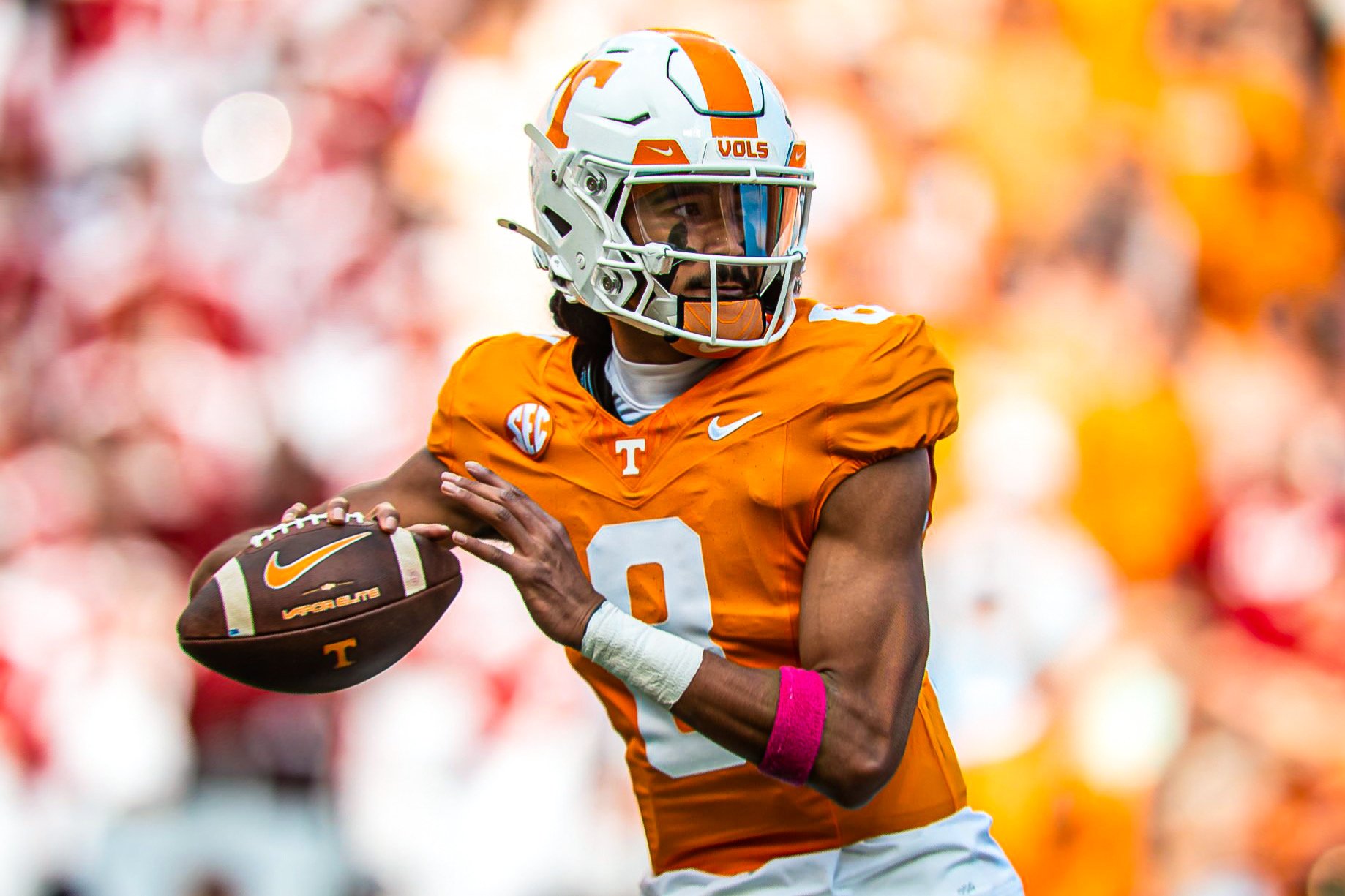NICO IAMALEAVA AND THE FUTURE OF NIL
Ajay Allen - April 14, 2025
In a move that’s had the college football world spinning in circles the last couple days, Tennessee quarterback Nico Iamaleava is no longer with the Volunteers. The highly acclaimed sophomore, once considered the future of the program, is stepping away from Rocky Top after a disagreement over his Name, Image, and Likeness (NIL) deal. While some fans are frustrated and others are understanding, the situation underscores just how much the college football world is evolving - both on and off the field.
Iamaleava, who helped guide Tennessee to a 10-3 record in 2024 and a College Football Playoff appearance, had reportedly been seeking a raise in his NIL deal. He was earning an estimated $2.2 million annually but asked for it to be doubled to $4 million. After missing one team practice, and being unable to find a firm agreement, head coach Josh Heupel announced that Tennessee has decided to move forward without him as the team’s quarterback.
Despite the short time off the field, the impact of the situation is huge. Iamaleava passed for nearly 3,000 yards with 21 touchdowns in his first full season as a starter. He showed flashes of star potential and had become a fan favorite in Knoxville. Some fear his departure will leave a major hole in the Vols' offense and change the team’s direction heading into the 2025 season.
But this situation is bigger than Tennessee. It’s part of a much larger conversation happening across college football. The rise of NIL has completely changed how college athletes view their role, their value, and their future. No longer are players just student-athletes hoping for a shot at the NFL, they are now also brand ambassadors, entrepreneurs, and business partners.
Right now, there are over 3,000 players in the NCAA transfer portal — and that’s just at the Division I level. That number shows how much freedom players have to explore new opportunities, whether it’s about playing time, coaching relationships, or NIL money. For many athletes, entering the portal is a chance to take control of their own journey.
Some fans and coaches celebrate this change. They believe athletes deserve to benefit from their hard work and marketability. After all, college football is a billion-dollar industry, and for years, players weren’t allowed to earn a dime. NIL has finally opened doors for athletes to get a piece of the pie.
But others see this new era differently. They worry that the constant movement is damaging the loyalty and long-term commitment that used to define college programs. Roster turnover is at an all-time high, and it's becoming more difficult for fans to connect with players who may only be at a school for a season or two. There's also concern that NIL negotiations are creating tension inside locker rooms and shifting focus away from team goals.
In Nico’s case, the situation touches on all of these themes. He was a young, promising quarterback at a major SEC program, and yet, even he found himself at odds with the system. Whether his next step is another Power Five school or an unexpected landing spot, his departure will be a major storyline for months to come.
Tennessee, meanwhile, will have to regroup quickly. Redshirt freshman Jake Merklinger and true freshman George MacIntyre will now compete for the starting role, while the Vols may also explore the transfer portal to add depth or experience to the quarterback room. It’s a tough situation for a program that had high expectations and was building momentum.
At the end of the day, Iamaleava’s story is just one example of the new normal in college football — a world where players are empowered to make decisions for themselves but where those decisions can also come with risks and backlash.
As the sport continues to evolve, the hope is that a balance can be found — one that allows athletes to grow their brands and chase their dreams, while also protecting the integrity and tradition that college football fans love so much.
